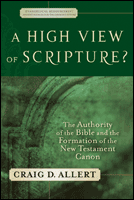Monthly Archives: July 2007
TBTE20070706
Is Christ Divided? session 9
Is Christ Divided?
Notes for the house groups on 1 Corinthians.
Week eight, beginning Sunday 8 July: 1 Corinthians 8
Main themes: Acceptable behaviour and conscience
Sacrifice
Scandal (revisited)
Click ‘full post’ for text.
Questions to prompt discussion
1.What is the equivalent of an ‘idol-feast’ in our present time? That is, what are the idols of our present age, and how are they celebrated?
2.In the light of the answer to that question – are there things which Christians presently do without thinking which may in fact be harmful? And even if they are not harmful, are they ways in which the distinctiveness of the Christian witness is compromised?
3.To what extent should the behaviour of a Christian be governed by the effect of that behaviour on another Christian? Is Paul embracing a scale of faith, ie different categories of Christian belief?
4.How do you understand the term ‘sacrifice’? Is there a single ‘Biblical’ understanding of it? And how does it relate to understanding both the Last Supper and the crucifixion?
Supplementary thoughts:
Here Paul is beginning a sequence which runs through to the end of chapter 11 and includes his teaching on the Lord’s Supper – so this is quite important! Bear this in mind as the context for what Paul is teaching with regard to ‘idol feasts’.
An idol is anything placed in the position of God. In the Corinthian context (and the Old Testament context) this could be something tangible, eg the Golden Calf, a representation of the Emperor, but it doesn’t have to be – beliefs and world-views can also be idolatrous. The key point concerns how much importance something is given, how valuable something is perceived to be. Anything given excessive importance, in an individual’s life or by the wider culture, is an idol. A Christian perceives that there is no final reality for an ‘idol’ – because there is only one God who is in charge of all things – but idolatry is undoubtedly a very real phenomenon with spiritual consequences, and this is something which Paul is concerned to emphasise (see chapter 10).
In the context of Corinth, the ways in which the idol-feast worked needs to be clarified. A sacrifice was essentially a big feast and celebration, which took place often within the temple itself – there was a separate ‘dining area’, which could be compared to a posh restaurant today. There would often be an excess of meat generated from the sacrifice (after the deity, ie the priests, had their share, and the family had theirs) which was then placed on general sale in the market. These feasts often had a very important societal function, and the implication from Paul’s letter is that some of the Corinthian church members were continuing to take part in these feasts in order to preserve their position in the wider society. There was also the possibility of something darker – some sacrifices were more Dionysian, ie it wasn’t simply a feasting but also an initiation into ‘mysteries’ and the use of cultic prostitution, which Paul criticises elsewhere (chapter 6 here, also Romans 1). Note that “punishment” is not a necessary element of sacrifice.
The ‘stumbling block’ of verse 9 is an important concept, which I tried to introduce in session 2, but my presentation of the point wasn’t especially clear! There is a group of concepts in the New Testament which hang together, and need to be understood together, involving who Satan is and how he works – the stumbling block (in Greek: the skandalon) is a key part of this. Essentially Satan is the ‘prince of this world’ (John 12.31, 14.11, 14.30, 16.11). This does NOT mean that Satan created this physical world, over against God who created the spiritual world – that is gnosticism and absolutely opposed to Christian faith. No, Satan is the ‘prince of this world’ in the sense of being in charge of worldly things, worldly perspectives. Satan is literally ‘the accuser’, and the way in which a false group cohesion is fostered is through the exclusion of scapegoats, the ones who carry the sin of the wider group. In particular, Satan is in charge of ‘the herd’, or the ‘group mentality’ which seeks a scapegoat on which to lay the problems of the group (think of the role of the Jews in 1930s Germany, a good example of the Satanic perspective being given free reign). Finally, the stumbling-block is precisely the ‘scandal’, ie that which is offensive to this worldly mentality, this ‘group think’. The point of Christian faith is that, through identification with Christ on the cross – the scapegoat crucified by the world – we are set free from these worldly patterns of thought. Therefore one hallmark of a Christian is precisely not “taking offence” – for the taking of offence is worldly judgement. As a redeemed sinner there is no place to stand over against a neighbour, thus there can be no exclusion, that exclusion which ultimately leads to murder (cf John 8.44). There are many places in the New Testament where this concept is used, although the translations often obscure the continuity (sometimes skandalon is translated as ‘offence’ or ‘offend’):
1.compare Ps 118.22 (quoted in Mk 12.10/Lk 20) Isaiah 8.12-15, 1 Peter 2 4-10 – if we can be ‘not offended’ by the cross – then we are saved
2.Mt 11.6 – “blessed is the one who takes no offence at me” – ie is not scandalised by Jesus
3.Mt 9.42 – whoever causes one of these little ones to be scandalised….
4.Mt 5.29 – if your right eye causes you to sin, literally ‘if your eye causes you to be scandalised’ pluck it out
5.Jn 16.1 – “these things I have told you so that you will not be scandalised” (go astray)
6.Jn 6.53-61 – teaching about communion – “Does this offend you?” – communion shares in the scandal of the cross
With regard to its use here in 1 Corinthians 8, Paul is rebuking the elders of the Corinthian church for effectively giving Satan a renewed foothold in the life of the faithful: ‘be careful that your freedom doesn’t scandalise’, otherwise the weak will be destroyed (verse 11) by being caught up in the world, they will ‘fall into sin’ (verse 13).
Notes on verses
v1 ‘puffs up’ – makes arrogant, (consistent theme: cf 4.6, 4.19, 5.2, 13.4)
v3 note the passive sense of being known by God
v6 a very early creedal statement of Christ’s divinity
v11 note the emphasis upon weakness and recall the second half of chapter 1
TBTM20070706
Battlestar Galactica (Season Two)
Torture and Eucharist (William Cavanaugh)

This was superb – a provocative and challenging exploration of both the failures of church to resist oppression and the way in which the church can reinvent itself by rediscovering its own history. Centring on the story of Chile under Pinochet, Cavanaugh redescribes torture as the liturgy of the state, to which the liturgy of the eucharist is the essential response. There’s quite a bit about this book on-line, and Cavanaugh is clearly one of the leading lights of present day theology.
Also, as I mentioned before, the one thing that reading this book has done is change my mind about excommunication for unrepentant sinners. The Body cannot BE the Body without it – in a very concrete sense.
PS one very minor caveat – Cavanaugh sees pain as essentially private, something with which a Wittgensteinian would disagree…
A High View of Scripture? (Craig Allert)

This was an extremely lucid, engaging and stimulating survey of how the New Testament canon was formed. Although I had the ‘big picture’ already, I learned a tremendous amount of new detail through the book. It’ll form a key resource in my autumn series of talks. Here’s a juicy quote:
“Before there was even Scripture, there was the faith; the early church did not set the limits of the scriptural canon as the paramount task of nascent Christianity. Its first goal was to settle the content of the faith, and it did this using means other than the Bible… the early church would never have restricted the term ‘canon’ to the Bible alone… Each element in the canonical tradition of the church has a part to play in the whole, and the canonization of Scripture took place within this whole.”
What was most intriguing was the central role given to the apostolic tradition as the source of primary authority, including for the words of Jesus. “Scripture” was not the centre of gravity for the community, and there was no such thing as “the Bible” for hundreds of years. Fascinating.
TBTM20070705
And the man said to Jesus ‘What must I do to be saved?’
And Jesus said ‘Keep the commandments. Not everyone who calls me Lord will enter the Kingdom but only those who do the will of my father in heaven’.
And Zacchaeus said ‘I shall pay back double to anyone that I have defrauded’.
And Jesus said ‘Today salvation has come to this house’.
Children in church
Great quote on including children in undiluted worship, found via Andy Goodliff:
…we must regularly communicate to children (and their parents) that they are integral to the whole worshipping body gathered weekly to imagine and practice God’s world into being, and that their presence and participation are not merely tolerated but happily anticipated. When we “dismiss” children from the worshipping body (say, for “childrens church”), no matter how well-intentioned our efforts at teaching them about worship, we convey to them and to all others present that dividing the worshipping body is an acceptable norm. More importantly, we rob children of the gift of being formed by the regular habit, discipline, and joy or corporate worship – which is really how they learn it and learn to love it in the first place….
But it is also important to insist that worship should not cater to children, since to do so is to give in to the pressures of accomodating style and preference and the temptation to appeal to a target audience. Rather, worship that seeks above all else to enact God’s story of redemption and to imagine God’s politics of peace invites and expects the participation of the whole household of faith – young and old, rich and poor, the able and the infirm – with the understanding that, in regard to young children especially, there are privileges reserved for their maturity, and mysteries and riches of the worshipping life that reveal themselves as rewards for years of practice and perserverance. Children should never be the center of attention in worship (God alone is the object of our devotion) but as children learn about worship by regularly participating in it, we hope and trust that they will come to reap those rewards…..
Strongly agree with this – include children in the real thing; don’t exclude the children; don’t dumb it down; teach them how to engage with it fully. That requires effort, of course, and most of all it requires the adults to understand what worship is about for themselves. The absence of that understanding vitiates a lot of effort, methinks.






